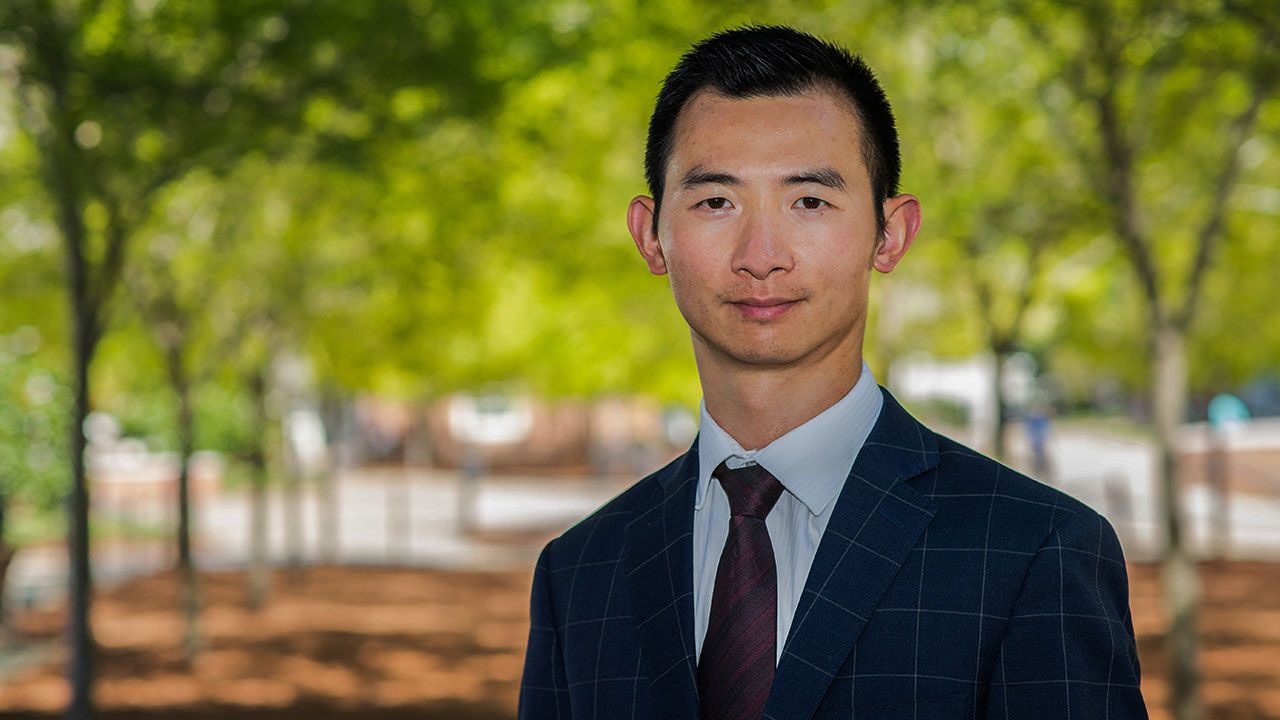Professor in ECE earns international award for study on hybrid quantum devices
Published: Nov 16, 2021 2:05 PM
By Virginia Speirs
Peng Li, assistant professor of electrical and computer engineering in the Samuel Ginn College of Engineering, with two co-collaborators, received the International Joint Award by the U.S. Air Force Science Lab Asian Office of Aerospace R&D and the National Research Foundation of South Korea.
The research award sponsored for their project “Engineering Exceptional Points in All-on-Chip Organic-Inorganic-Layered Hybrid Quantum Devices” comprises $290,000 for the U.S. principal investigators Peng Li and Wei Zhang, and ₩300,218,052 (equals $253,756) for the R.O.K. PI Tae Hee Kim.
The goal of this project is to investigate the feasibility of quantum transduction systems in an all-on-chip format, along with the functionality of tuning exceptional points in hybrid magnonic quantum systems, according to Li. The benefits of metal-organic structures in the device will also be researched as well.
“This is an exciting collaborative project between three universities, with Auburn University as the lead institution,” said Li, who collaborated with Prof. Zhang from Oakland University (Michigan) and Prof. Kim of Ewha Womans University in Seoul, South Korea. “We are interested in developing the next generation of quantum systems to realize novel functionalities and improved performances.”
To do this, they will first study magnon-magnon coupled hybrid systems with parity-time (PT) symmetry. They will then explore magnon-microwave photon coupled systems with anti-PT-symmetry. On top of these, they will construct a complete on-chip system with spin waves that interact with the optical modes via inverse-Faraday effects. This way, quantum technology will be consolidated while retaining its superior capabilities.
“The purpose of this is to build devices for converting the information from one mode, which is a superconducting qubit, to other modes, such as a photon,” Li said. “In our project, we want to emphasize that 2D magnetic materials and devices are the keys to quantum information applications.”
Currently, it is difficult for platforms for quantum transduction to function above cryogenic temperatures. Therefore, building these hybrid systems to operate at room temperature will be promising for the future of quantum systems, according to Li.
“One of our goals at Auburn is to enter quantum research, and this is a very good demonstration that we are actually doing it,” Li said.
Li acknowledges the excellent infrastructure and resources provided by the college, Department of Electrical and Computer Engineering, and Alabama Micro-/Nano-Science and Technology Center.
Media Contact: , jem0040@auburn.edu, 334.844.3447
Peng Li and collaborators investigated the feasibility of quantum transduction systems in an all-chip-on-chip format.

